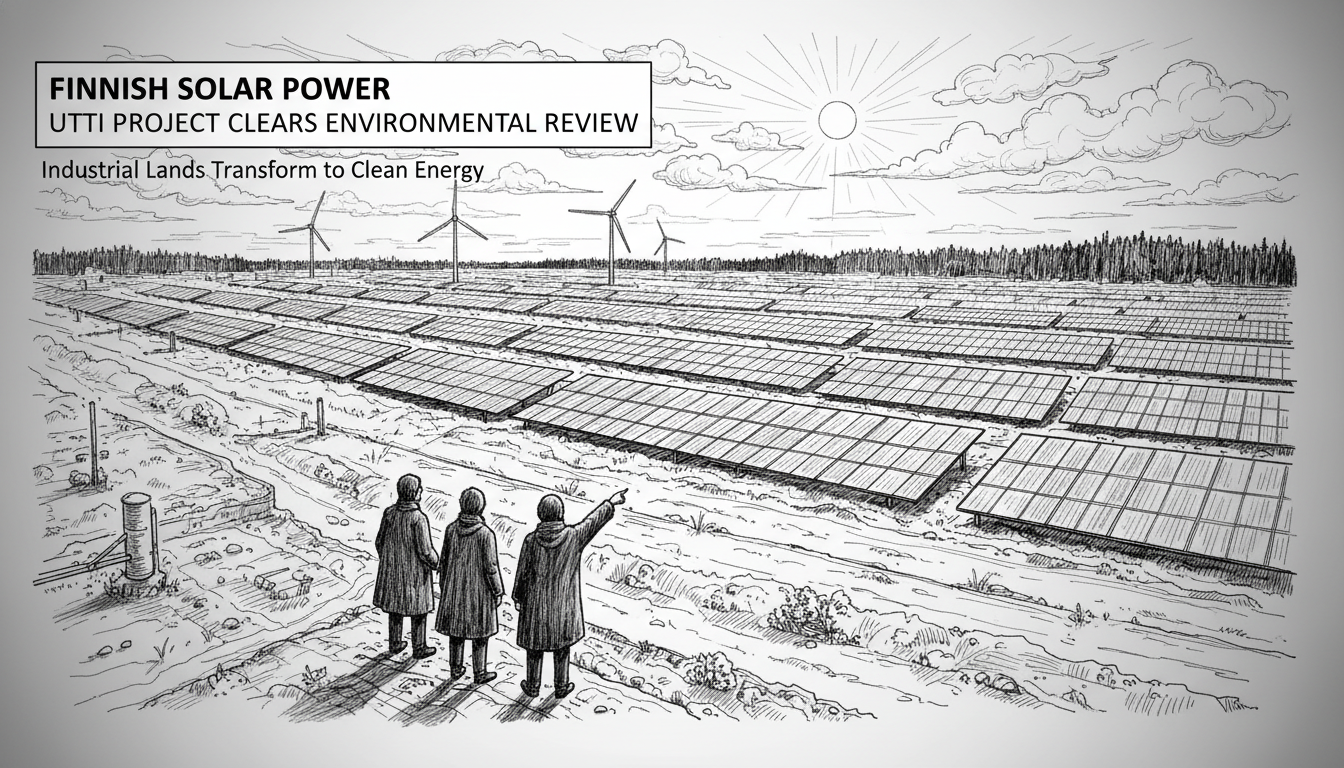Kouvola city officials have raised no objections to the environmental impact assessment program for a major solar energy development planned for former peat production areas in Utti. The UPM Solar project aims to install photovoltaic panels across two long-used peat extraction zones spanning up to 933 hectares in the Haukkasuo and Kiikunsuo regions. This represents Finland's ongoing transition from fossil-based energy sources toward renewable alternatives that repurpose industrial lands.
The Southeast Finland Centre for Economic Development, Transport and the Environment requested the municipal statement as part of mandatory environmental impact assessment procedures. The comprehensive evaluation examines multiple factors including water system impacts from construction, relationships with surrounding protected areas, effects on peatland carbon storage, local settlement patterns, natural values, and proximity to Utti Airport. Assessment documentation confirms that key environmental impacts have been properly identified within the program framework.
Finland's energy policy increasingly emphasizes repurposing former industrial lands rather than developing untouched natural areas. This approach aligns with both national climate objectives and European Union renewable energy directives that prioritize sustainable land use. The environmental impact assessment process generates crucial decision-making information without determining the project's ultimate fate, leaving final approval to relevant authorities.
The project developer, UPM Solar, belongs to the UPM Energy portfolio and represents the forest industry's diversification into renewable energy markets. Finland's peatlands have historically served industrial and energy production needs, creating complex land use legacies that now present both challenges and opportunities for green transition initiatives. This solar project exemplifies how former extraction sites might contribute to Finland's carbon neutrality goals while addressing land restoration needs.
Local municipalities like Kouvola balance economic development priorities with environmental protection responsibilities, particularly in regions with extensive peatland ecosystems. The thorough assessment process reflects Finland's systematic approach to major energy infrastructure projects, ensuring all stakeholders can review potential impacts before decisions proceed. Public accessibility of environmental documentation maintains transparency in development processes that affect community resources and regional ecosystems.
Solar energy development on former industrial lands represents a pragmatic approach to Finland's renewable energy expansion. These projects utilize already-disturbed areas while contributing to national climate targets and regional economic activity. The environmental review completion marks a procedural milestone, but the project still requires multiple approvals before construction could potentially begin in coming quarters.

